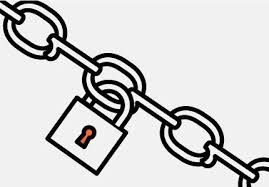How to stop hackers in their tracks
by Conosco on Aug 10, 2017

Whether you’re utilising IT support London or a provider across the world, the chances are that you’ve been made well aware of the threats posed by online hackers. From casual threats that pose a small inconvenience to those that could actually cripple your business, you need to mitigate your risk at all costs.
First things first. Make sure that your passwords are complex. Whilst this is the easiest piece of advice to give, it’s the one most seldom taken. Avoid being the organisation that uses the same password for everything. This only makes it easier for hackers to infiltrate your network and accounts. Once they’re in, what they can do is both impressive and simply frightening. Don’t risk it, ensure that you strengthen your passwords now.
- A strong and reliable password uses both upper and lowercase letters, symbols, numbers and gibberish.
- Avoid personal connections like your pet or spouse’s name.
- The accounts that are the most important (like your email, cloud storage and banking) will need to have their passwords changed every six months.
The next tip is to be exceptionally cautious of emails. Malicious emails are the most common form of hacking because they’re the easiest to send to a large volume of people.
- Beware of phishing scams from banks or tax providers that ask you to verify your personal information.
- Always pay close attention to the sender of the email and not just their display name.
- Take a look at the actual email address that the email has come from and you’ll be surprised at just how many hackers are trying to scam you and others in this manner.
- If you’re still not totally convinced by the email address, examine the IP address. Through this, you’ll be able to find the true source of the email as well as its intentions.
With emails in mind, you should never open an attachment or file unless you are completely sure of its source. One of the simplest ways for hackers to pass malicious code onto your computer is through email attachments. The worst part about this is that through a single device, malicious code can get onto your entire company’s server.
Once one of your accounts is hacked, hackers will try and use the same password to get into other accounts that you might have. This is why we recommend having a different password for each account. It’s also why two-factor authentication is so important. Two-factor authentication requires that a code is entered once a password is entered as well. Most people elect for the code to be texted to their mobile phone and not emailed. That way, if their email is ever hacked, the thieves won’t receive the authentication code to access another account.
If you need more reliable advice on strengthening cyber security or improving your current IT system, why not contact us? With a team of dedicated IT professionals, we’ve got the right solutions to suit the needs of your business. https://www.conosco.com
You May Also Like
These Related Stories

The most common cyber security threats to your business
Key Points Hacking Phishing Malware Ransomware IT Provider As a provider of managed IT services UK, we’ve seen how compr …

How IT Solution Providers Should Be Keeping Your Business Safe
As you know, cyber security is a vital part of your business’ IT arsenal. For those looking to adopt a new IT team or ou …

Cyber Security advice for smaller Charities
Smaller charities often lack the cyber security resources that their larger counterpart businesses have and this can mak …
